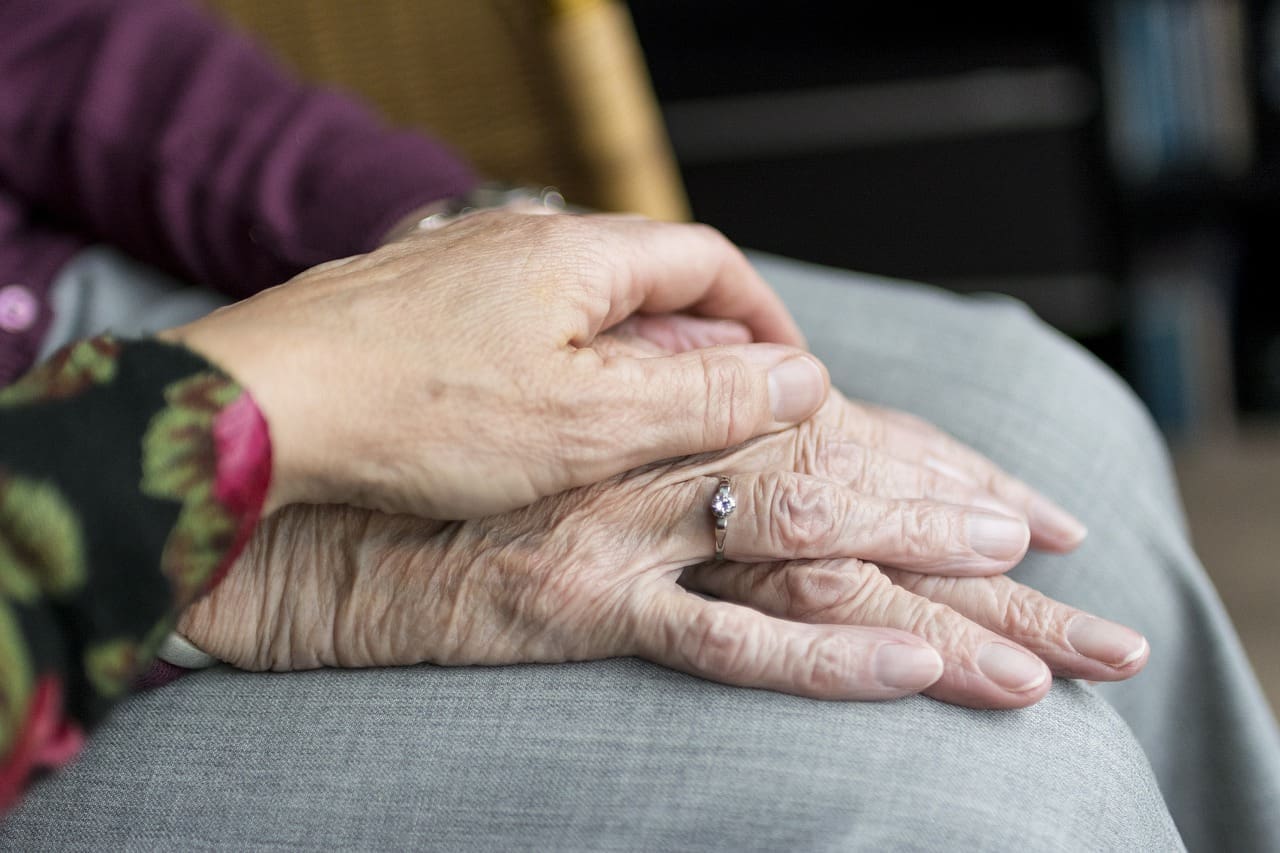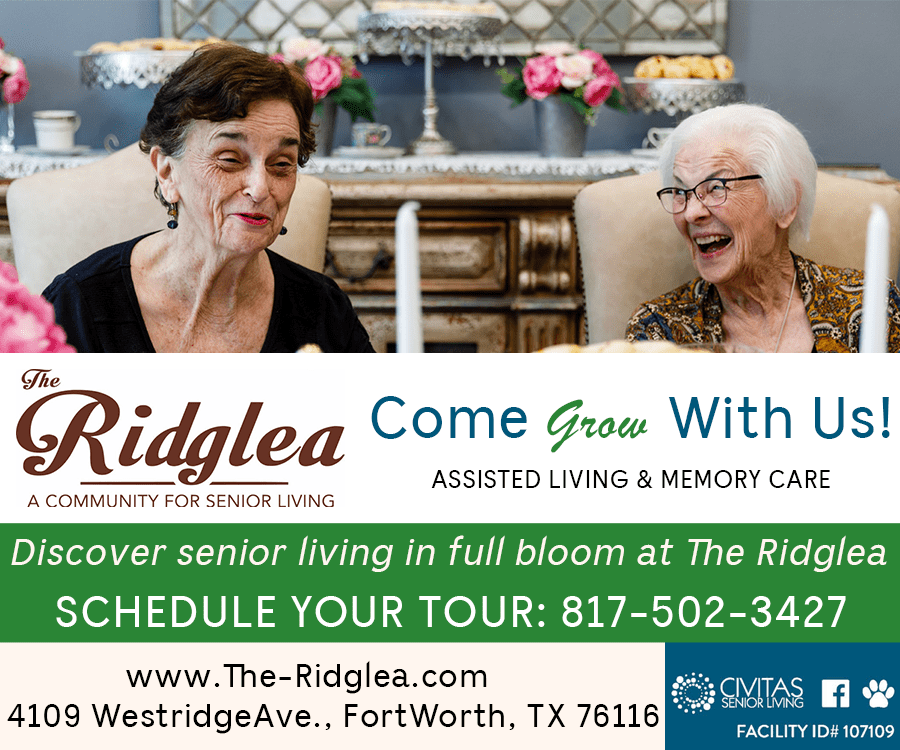
As our loved ones age, it’s important to understand the different types of elderly care options available to them. This can range from in-home care to assisted living facilities, nursing homes, and more. Knowing the different types of care can help you make informed decisions that best suit your loved one’s needs.
One of the most common types of elderly care is in-home care, which allows seniors to receive assistance with daily activities while remaining in the comfort of their own home. This can include help with tasks such as bathing, dressing, and meal preparation. Another option is assisted living facilities, which offer a more structured environment with 24-hour care and social activities for seniors. Nursing homes are another option for those who require more extensive medical care and supervision.
Understanding the different types of elderly care options available can be overwhelming, but it’s important to take the time to research and make informed decisions. By doing so, you can ensure that your loved one receives the care and support they need to live a happy and fulfilling life.
Understanding Elderly Care
As people age, they may require some level of assistance or care to help with issues such as health problems, decreased mobility, or other age-related factors. There are different types of elderly care options available to seniors and their families, depending on their specific needs and preferences.
Types of Elderly Care
Some of the most common types of elderly care options include:
- In-home care: This type of care involves a caregiver coming to the senior’s home to provide assistance with daily activities, such as bathing, dressing, and meal preparation. In-home care can be a good option for seniors who want to maintain their independence and stay in their own homes.
- Assisted living: Assisted living facilities provide seniors with a range of services, including meals, housekeeping, and assistance with activities of daily living. This type of care is ideal for seniors who need more support than in-home care can provide, but who do not require round-the-clock medical care.
- Memory care: Memory care facilities are designed for seniors with Alzheimer’s or other forms of dementia. These facilities provide specialized care, including structured activities and therapies, to help seniors maintain their cognitive function and quality of life.
- Nursing homes: Nursing homes provide round-the-clock medical care and supervision for seniors who require more advanced care due to chronic health conditions or disabilities.
Payment Options
Elderly care can be expensive, and it’s important to understand the payment options available. Some of the most common payment sources include:
- Government programs: Medicare and Medicaid are two government programs that can help cover the cost of elderly care. Medicare typically covers short-term stays in nursing homes or home health care, while Medicaid can provide long-term care coverage for seniors with limited financial resources.
- Long-term care insurance: Long-term care insurance is a type of insurance policy that can help cover the cost of elderly care. This type of insurance can be expensive, but it can provide peace of mind for seniors and their families.
- Other financing options: There are other financing options available for elderly care, including personal savings, home equity loans, and reverse mortgages. It’s important to explore all options and choose the one that best fits your financial situation.
Understanding the different types of elderly care options and payment sources can help seniors and their families make informed decisions about their care. It’s important to consider factors such as cost, location, and level of care when choosing an elderly care option.
Types of Elderly Care
When it comes to elderly care, there are various options available depending on the needs of the individual. Here are some of the most common types of elderly care:
Assisted Living
Assisted living is a type of elderly care that provides assistance with daily living activities such as bathing, dressing, and medication management. Residents typically live in private apartments or shared rooms and have access to communal spaces and activities. Assisted living facilities are a good option for seniors who need some assistance with daily living activities but still want to maintain their independence.
Nursing Home Care
Nursing homes provide 24-hour skilled nursing care for seniors who require more medical attention than what can be provided in assisted living facilities. Nursing homes also offer rehabilitation services for seniors recovering from an illness or injury. Nursing homes are a good option for seniors who require constant medical attention and supervision.
Independent Living
Independent living is a type of elderly care that provides seniors with their own private living spaces, often in the form of apartments or condos. Independent living facilities typically offer communal spaces and activities for seniors to socialize and stay active. Independent living is a good option for seniors who are still able to live independently but want to downsize their living space and have access to social activities.
Dementia Care and Memory Care
Dementia care and memory care are specialized types of elderly care that cater to seniors with Alzheimer’s disease or other forms of dementia. These facilities provide a safe and secure environment for seniors with memory loss and offer specialized care and activities to help maintain cognitive function.
Skilled Nursing
Skilled nursing facilities provide 24-hour nursing care for seniors who require medical attention and supervision. These facilities are equipped to handle complex medical conditions and provide rehabilitation services for seniors recovering from an illness or injury.
Respite Care
Respite care provides temporary relief for caregivers who need a break from caring for their loved ones. Respite care can be provided in a variety of settings, including in-home care, adult day care, and residential care facilities.
Hospice
Hospice care is a type of end-of-life care that focuses on providing comfort and support for seniors with a terminal illness. Hospice care can be provided in a variety of settings, including in-home care, residential care facilities, and hospitals.
Long-Term Care
Long-term care refers to a range of services provided to seniors who require ongoing assistance with daily living activities. Long-term care can be provided in a variety of settings, including in-home care, residential care facilities, and nursing homes.
In-Home Care
In-home care provides assistance with daily living activities for seniors who wish to remain in their own homes. In-home care can be provided by family members or professional caregivers and can include services such as meal preparation, medication management, and transportation.
Adult Day Care
Adult day care provides socialization and activities for seniors during the day while their caregivers are at work or otherwise unavailable. Adult day care centers typically provide meals, activities, and transportation for seniors.
Overall, there are many options available for elderly care depending on the needs of the individual. It is important to research and compare different types of elderly care to find the best fit for your loved one.
Understanding Assisted Living
Assisted living is a popular choice for seniors who need help with daily tasks and activities but still want to maintain their independence. According to U.S. News, assisted living communities provide a combination of housing, support services, and healthcare to seniors who need assistance with activities of daily living (ADLs) such as bathing, dressing, and medication management.
One of the biggest benefits of assisted living is that staff is available 24/7 to provide support and assistance as needed. This means that seniors can receive help with tasks like housekeeping, laundry, and dining, as well as with socialization and security. Many assisted living communities also offer a range of activities and events to help seniors stay active and engaged.
It is important to note that assisted living is not the same as fully independent living. While seniors in assisted living communities have their own private living spaces, they also have access to staff and support services as needed. This can be a good option for seniors who need some assistance but still want to maintain their independence.
Overall, assisted living can be a great option for seniors who need help with daily tasks and activities but still want to maintain their independence. With 24/7 staff support, a range of activities and events, and access to healthcare services, assisted living communities can provide seniors with the support they need to live comfortably and safely.
Nursing Homes and Skilled Nursing Facilities
Nursing homes and skilled nursing facilities (SNFs) provide round-the-clock care for elderly individuals who require medical attention and assistance with daily activities. While both types of facilities offer similar services, there are some key differences to consider.
Nursing Homes
Nursing homes are residential facilities that provide long-term care for individuals who require assistance with activities of daily living (ADLs), such as bathing, dressing, and eating. They also offer medical care and supervision by licensed nurses and physicians.
Nursing homes are a good option for individuals who require regular medical attention but do not need the level of care provided by a hospital. They also offer a sense of community and socialization opportunities for residents.
Skilled Nursing Facilities
Skilled nursing facilities (SNFs) are similar to nursing homes but provide a higher level of medical care. They offer round-the-clock care by licensed nurses and physicians, as well as physical, occupational, and speech therapy services.
SNFs are a good option for individuals who require short-term rehabilitation services after a hospital stay or surgery. They also provide specialized care for individuals with chronic medical conditions, such as Alzheimer’s or Parkinson’s disease.
Choosing Between Nursing Homes and Skilled Nursing Facilities
Choosing between a nursing home and a skilled nursing facility depends on the individual’s specific needs. If the individual requires regular medical attention and supervision, a skilled nursing facility may be the better option. However, if the individual requires assistance with ADLs and socialization opportunities, a nursing home may be a better fit.
It is important to research and visit multiple facilities before making a decision. Consider factors such as location, cost, and quality of care when making a decision.
Memory Care Facilities
Memory care facilities are specialized living communities designed to provide care and support to seniors with cognitive impairments such as dementia and Alzheimer’s. These facilities offer a safe and secure environment that is tailored to meet the unique needs of individuals with memory-related conditions.
Memory care facilities are staffed with trained professionals who understand the challenges associated with cognitive impairments. They provide round-the-clock care and support to ensure that residents receive the attention and assistance they need to maintain their quality of life.
One of the most significant benefits of memory care facilities is the availability of stimulating activities that are designed to engage residents and promote cognitive function. These activities may include music therapy, art classes, and games that are specifically designed to improve memory and cognitive function.
Memory care facilities also offer a range of services that are designed to meet the unique needs of individuals with cognitive impairments. These services may include medication management, assistance with activities of daily living, and specialized programs that are tailored to meet the needs of individuals with memory-related conditions.
In summary, memory care facilities are an excellent option for seniors with cognitive impairments who require specialized care and support. These facilities offer a safe and secure environment, round-the-clock care, and engaging activities that are designed to promote cognitive function and improve quality of life.
In-Home and Respite Care
Two common types of elderly care options are in-home care and respite care. In-home care involves someone visiting the person in need at their home to help them with daily activities. This type of care is best for those who prefer to live in the comfort of their own homes and communities as they age. In-home care can be provided by a family member, friend, or skilled caregiver.
Respite care, on the other hand, provides temporary relief for a primary caregiver, enabling them to take a much-needed break from the demands of caregiving a sick, aging, or disabled family member. This type of care can take place in the person’s own home, at day-care centers, or at residential or nursing facilities that offer overnight stays.
In-home care and respite care can greatly improve the quality of life for both the person in need of care and their loved ones. In-home care allows the person to remain in their familiar surroundings, which can provide comfort and a sense of security. Respite care, on the other hand, allows caregivers to take a break from their caregiving duties, which can help prevent burnout and improve their own quality of life.
It’s important to note that in-home care and respite care may not be suitable for everyone. The type of care needed depends on the person’s specific needs and circumstances. It’s important to consult with a healthcare professional or eldercare specialist to determine which type of care is best for you or your loved one.
Hospice and Long-Term Care
Hospice and long-term care are two options for elderly care that serve different purposes. Hospice care is designed to provide comfort and support to individuals who are nearing the end of their life. Long-term care, on the other hand, is intended for individuals who require ongoing support with activities of daily living due to physical or cognitive impairments.
Hospice Care
Hospice care is typically provided in the individual’s home, but it can also be provided in a hospice facility. Hospice care is designed to provide comfort and support to individuals who are in the final stages of a terminal illness. The goal of hospice care is to help individuals live as comfortably as possible in their remaining days.
Hospice care is provided by a team of professionals, including nurses, social workers, chaplains, and volunteers. The team works together to provide physical, emotional, and spiritual support to the individual and their family. Hospice care may also include pain management, symptom control, and other medical services as needed.
Long-Term Care
Long-term care is designed for individuals who require ongoing support with activities of daily living due to physical or cognitive impairments. Long-term care can be provided in a variety of settings, including nursing homes, assisted living facilities, and in the individual’s home.
Long-term care is typically provided by a team of professionals, including nurses, social workers, and geriatric care managers. The team works together to provide ongoing support to the individual and their family. Long-term care may include assistance with activities of daily living, medication management, and other medical services as needed.
In conclusion, hospice and long-term care are two options for elderly care that serve different purposes. Hospice care is designed to provide comfort and support to individuals who are nearing the end of their life, while long-term care is intended for individuals who require ongoing support with activities of daily living due to physical or cognitive impairments. Both options are provided by a team of professionals who work together to provide support to the individual and their family.
Financial Considerations
When it comes to elderly care options, the financial considerations can be a significant factor in the decision-making process. The cost of care can vary widely depending on the type of care needed, the location, and the level of assistance required. Here are some financial considerations to keep in mind:
Low-cost options
For those on a tight budget, there are low-cost options available, such as in-home care or adult day care centers. These options tend to be less expensive than nursing homes or assisted living facilities. Medicaid is another option for those who meet certain income and asset requirements.
High-cost options
On the other end of the spectrum, nursing homes and memory care facilities tend to be the most expensive options. However, these options may be necessary for those who require a high level of medical care or supervision.
Medicaid and Medicare
Medicaid and Medicare are government-funded programs that can help cover the cost of elderly care. Medicaid is designed for those with low income and assets, while Medicare is available to those over 65 or with certain disabilities. Both programs have specific eligibility requirements and may not cover all types of care.
Insurance
Long-term care insurance is another option for covering the cost of elderly care. This type of insurance can help cover the cost of nursing homes, assisted living facilities, and in-home care. It is important to carefully review the policy and understand what is covered and what is not.
Investment
For those who have significant assets, investment options may be available to help cover the cost of elderly care. This could include selling off assets, such as a second home or rental property, or using retirement savings to pay for care.
PACE
PACE (Programs of All-Inclusive Care for the Elderly) is a program that provides comprehensive medical and social services to individuals over 55 who require nursing home-level care but wish to remain in their own homes. PACE is funded by Medicare and Medicaid and may be an option for those who meet the eligibility requirements.
In summary, there are various financial considerations to keep in mind when it comes to elderly care options. It is important to carefully review all options and understand the costs and eligibility requirements before making a decision.
Choosing the Right Care Option
Choosing the right care option for your elderly loved one can be a challenging decision. It is essential to consider their needs, preferences, and budget when selecting a care option. This section will provide an overview of different care options available and factors to consider when choosing the right care option.
Levels of Care
Senior living communities offer different levels of care to meet the varying needs of seniors. The different levels of care include independent living, assisted living, memory care, and skilled nursing. Independent living communities are ideal for seniors who are still active and do not require assistance with daily activities. Assisted living communities offer assistance with daily activities, such as bathing, dressing, and medication management. Memory care communities cater to seniors with Alzheimer’s or dementia. Skilled nursing communities offer around-the-clock medical care for seniors with complex medical needs.
Continuing Care Retirement Communities (CCRCs)
CCRCs are senior living communities that offer different levels of care under one roof. Seniors can move between different levels of care as their needs change without having to move to a different community. CCRCs offer a continuum of care that includes independent living, assisted living, memory care, and skilled nursing.
Personal Care Homes
Personal care homes are residential homes that offer care and support to seniors who require assistance with daily activities. These homes provide a more intimate and homely environment than larger senior living communities. Personal care homes offer assistance with daily activities, such as bathing, dressing, and medication management.
Retirement Homes
Retirement homes are senior living communities that offer independent living with amenities such as housekeeping, transportation, and social activities. These communities are ideal for seniors who are still active and do not require assistance with daily activities.
When choosing the right care option, it is essential to consider the level of care required, the location, amenities, and cost. It is also crucial to visit different communities, talk to staff and residents, and ask questions to ensure that the care option meets your loved one’s needs and preferences.
Legal and Medical Considerations
When it comes to elderly care, there are several legal and medical considerations that need to be taken into account. These considerations can affect the type of care that is provided and the options that are available.
Legal Considerations
One important legal consideration is the form of care that is provided. There are several different forms of care available, including in-home care, assisted living, and nursing homes. Each of these forms of care has different legal requirements and regulations that must be followed.
Another legal consideration is licensing. Many types of elderly care facilities are required to be licensed by the state in which they operate. This licensing ensures that the facility meets certain standards of care and safety. It is important to ensure that any facility you are considering is properly licensed.
Medical Considerations
When it comes to medical care, there are several important considerations to keep in mind. One consideration is medication. Elderly individuals often require multiple medications, and it is important to ensure that these medications are being properly managed. This may involve working with doctors and other healthcare providers to ensure that medications are being taken as prescribed and that there are no adverse interactions.
Another consideration is treatment for specific symptoms or conditions. Elderly individuals may experience a range of symptoms and conditions, such as dementia, arthritis, or diabetes. It is important to ensure that any care provided addresses these specific needs.
Finally, disability and health care services should be considered. Elderly individuals may have disabilities that require special accommodations or equipment. Additionally, they may require access to specialized health care services, such as physical therapy or occupational therapy.
Overall, it is important to take legal and medical considerations into account when selecting an elderly care option. By doing so, you can ensure that the care provided is safe, effective, and meets the specific needs of the individual receiving care.
Planning Ahead for Elderly Care
As people age, it becomes important to plan ahead for their care. This can involve deciding on the type of care needed, selecting a care provider, and making financial arrangements. Planning ahead can help ensure that elderly loved ones receive the care they need and deserve.
Aging in Place
Many seniors prefer to age in place, which means living in their own homes for as long as possible. This can be a good option for seniors who are in good health and have a support system in place. However, it is important to plan ahead for any future care needs that may arise.
Contact and Communication
It is important to stay in contact with elderly loved ones and to communicate with them about their care needs. This can involve having regular check-ins, discussing any health concerns, and making sure they have access to necessary resources and services.
Caregiving
For seniors who require more assistance, there are a variety of caregiving options available. This can include in-home caregivers, board and care homes, and skilled nursing facilities. It is important to research and compare different options to find the best fit for the individual’s needs and preferences.
Financial Planning
Planning ahead for elderly care also involves making financial arrangements. This can include setting up a savings plan, purchasing long-term care insurance, and exploring government assistance programs. It is important to consider all available options and to consult with a financial advisor when making these decisions.
In summary, planning ahead for elderly care can help ensure that seniors receive the care they need and deserve. This involves considering aging in place options, staying in contact and communicating with loved ones, researching and comparing caregiving options, and making financial arrangements.








